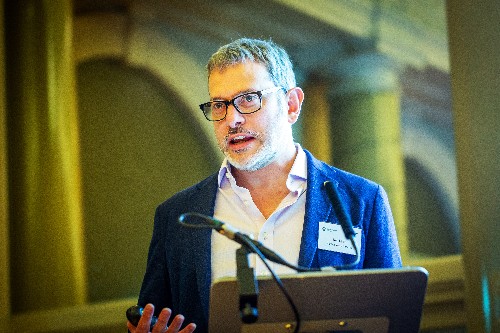Leading Nuclear Waste Scientist Joins University of Bristol
Professor Neil Hyatt, an internationally-renowned leader in the field of radioactive waste management, is set to begin a three-year role at the University of Bristol.
Prof Hyatt, currently Chief Scientific Advisor at Nuclear Waste Services (NWS) which unites the UK’s leading nuclear waste management expertise, has been appointed as Aegis Professor of Deep Time Science and Engineering in the School of Earth Sciences.
He said: “I am delighted and honoured to have the opportunity to support the School of Earth Sciences, and wider faculty, in realising their objectives relating to energy and the environment through provision of strategic advice.
“I look forward to mentoring students and staff, facilitating collaboration across organisations, and promoting the value of research and research impact in an industrial and government context.”
The Aegis Professor Scheme, managed by the university’s Science Partnership Office on behalf of the Faculty of Science and Engineering, appoints honorary professors from business and industry to work with staff and students in areas of strategic importance.
Prof Hyatt’s role at NWS, which focuses on the safe and secure management and disposal of the UK’s radioactive waste, ensures scientific and technical evidence is applied to decision making and risk assessment. He has acted as an advisor on nuclear waste and decommissioning both to the UK Government and organisations globally.
Professor Alison Rust, Head of Earth Sciences at the University of Bristol, said: “Nuclear waste is a long-term challenge for the UK that requires collaboration across disciplines, including the Earth Sciences. I am delighted to welcome Neil to help us strengthen what is a new research area for the school, particularly as it aligns with our priority for a sustainable future in both energy and the environment. Neil’s successes across academia, industry, and policy also brings an invaluable perspective to our students and researchers as they forge their own career paths.”
Professor David Manley, Dean of Science and Engineering at the University of Bristol, said:“Neil’s work will contribute to multiple strands of the faculty’s activity, enhancing our cross-disciplinary working and our collaborations between industry and academia in an area of key strategic importance. With the Schools of Physics, Earth Science and Geographical Sciences all represented in Nuclear Science, the role will be a catalyst to develop further networks, especially in nuclear waste management, a critical element of our infrastructure.”

